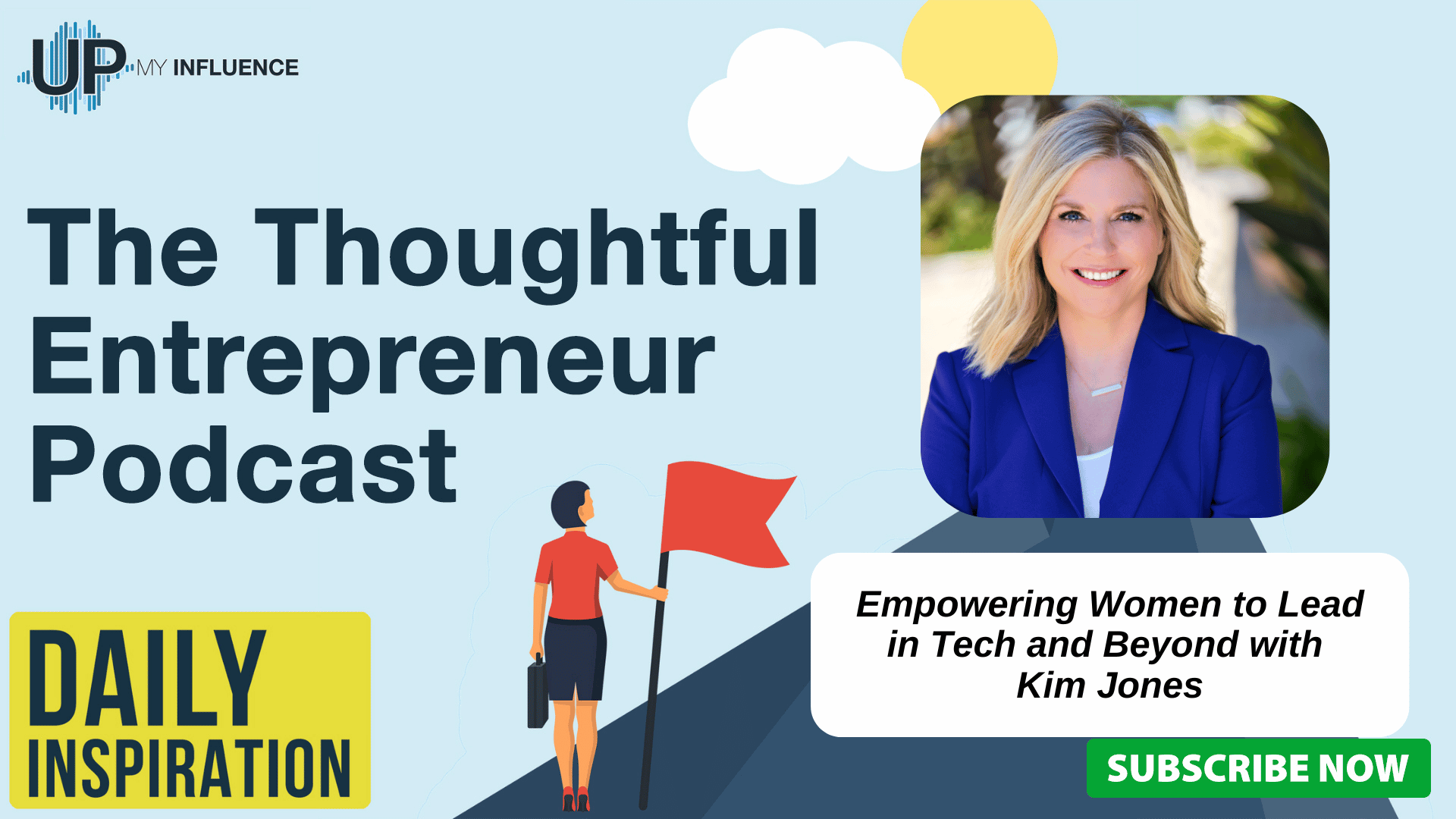THE THOUGHTFUL ENTREPRENEUR PODCAST
 Gender Equity in the Workplace
Gender Equity in the Workplace
In a recent episode of the Thoughtful Entrepreneur podcast, the host engages in a profound conversation with Kim Jones, the founder and CEO of the Kim Jones Alliance. The episode delves into the critical issue of gender equity in the workplace, particularly focusing on the challenges and opportunities for women in male-dominated industries like technology. This blog post will break down the key insights and actionable advice shared by Kim Jones, providing a comprehensive guide for listeners and readers alike.
Kim Jones boasts a 25-year corporate career, having ascended to senior executive roles in the information technology sector. As a former divisional CIO at a Fortune 250 company, Kim witnessed firsthand the underrepresentation of women in leadership positions, particularly in tech. This experience ignited her passion for elevating women in the workplace, leading her to establish the Kim Jones Alliance. Her organization is dedicated to empowering women to reach their highest potential through coaching, consulting, education, and workshops, creating a supportive environment where women can thrive, especially in industries where they are significantly underrepresented.
Despite positive developments over the past two decades, such as increased conversations about gender equity and evolving leadership models, significant gaps remain. Women continue to be underrepresented in leadership roles, particularly in Fortune 500 companies, and hold only 25% to 35% of positions in the tech industry. Kim emphasizes the need for organizations to turn their intentions into actions to create more diverse and inclusive workplaces. She encourages women to recognize systemic bias, find allies, promote visibility, and prepare to use their voices. Additionally, she urges men to understand women's experiences, avoid assumptions, and become allies by recognizing biases and uplifting others.
About Kim Jones:
Kim Jones draws on her 25 years of combined corporate and C-suite experience, coupled with her deep knowledge of leadership norms and best practices in corporate America, to develop a leading resource for women who want to advance their careers and create maximum workplace impact. She created Kim Jones Alliance (KJA) for individuals and companies looking to accelerate the progression of women in their work and careers. As part of this work, she partners with her clients to examine the structures that exist in their organizations and identify and implement solutions that create more equitable outcomes for women and other underrepresented groups, whether they be through leadership development or culture change.
KJA’s chief objective is working in traditionally male-dominated fields—especially technology — to assist them with becoming more hospitable for women while retaining the female talent already there. As such, KJA has developed courses and products that are designed to provide an equalizer for women seeking to climb the corporate ladder and reach their highest leadership potential. Through the trifecta of education, coaching, and consultancy, KJA empowers women in male prevalent fields like technology and leadership to shift both their mindsets and their behaviors to attain their professional goals. Furthermore, by embedding research and data on the ways that systemic bias shows up in companies and the strategies that effectively counteract them, Kim helps her clients examine and understand the systems of which they are a part and the actions that will best enable them to make meaningful changes within them. By doing so, she goes beyond merely highlighting the shortcomings in diversity and inclusion practices to empower her clients to take effective action.
She is also starting a new KJA Academy for women to enroll in to benefit from her work wisdom.
About Kim Jones Alliance, LLC:
Kim Jones Alliance helps ambitious women up-level their careers by creating work they love. Our deepest passion is guiding women into their freedom, empowerment, and purpose by helping them imagine and create the career of their dreams.
Both personalized one-on-one and group coaching programs are offered to assist clients with navigating their career transformation journeys. Both offerings are designed to guide clients in creating the vision of their most amazing career imaginable, and then building the blueprint to launch it. Our coaching focuses on the premise that inner work plus outer change is what fuels career transformation.
Apply to be a Guest on The Thoughtful Entrepreneur: https://go.upmyinfluence.com/podcast-guest
Links Mentioned in this Episode:
Want to learn more? Check out Kim Jones Alliance, LLC website at
https://www.kimjonesalliance.com/
Check out Kim Jones Alliance, LLC on LinkedIn at
https://www.linkedin.com/company/greenbananaseo/
Check out Kim Jones on LinkedIn at
https://www.linkedin.com/in/kimberleesjones/
Don’t forget to subscribe to The Thoughtful Entrepreneur and thank you for listening. Tune in next time!
More from UpMyInfluence:
We are actively booking guests for our The Thoughtful Entrepreneur. Schedule HERE.
Are you a 6-figure consultant? I’ve got high-level intros for you. Learn more here.
What is your #1 Lead Generation BLOCKER? Take my free quiz here.
Want to learn more about all the podcasts managed by UpMyInfluence? Opt in here.


